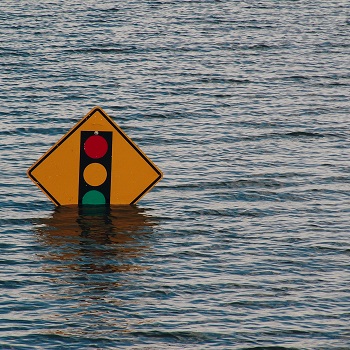Flowers for France’s Presidency, Brickbats for the Commission
It seems that France has had a good presidency. It could hardly have been a more challenging one, but despite the occasional sniff of folie de grandeur, President Nicolas Sarkozy has proved to be the man of the hour, with the élan needed to make things happen.
Foreign minister Bernard Kouchner and finance minister Christine Lagarde have also been key players. The French presidency’s handling of the Georgia crisis reinforced Europe’s diplomatic credibility, while the EU’s response to the economic crisis has been forceful and surprisingly coherent. “If people thought there was no such thing as a political Europe, well here it is” says Kouchner.
Time magazine even made Sarkozy runner-up (behind Obama) as 2008 Person of the Year – and asked Tony Blair to write an appreciation just as speculation mounts as to who might be the EU president if the Lisbon Treaty comes into effect by the end of 2009. Should we put two and two together?
The dynamism of the French presidency has apparently raised questions about the effectiveness of the European Commission. It is accused on the one hand of becoming just a secretariat of the Council and on the other of being too bureaucratic (independent?) in applying state aid policy.
I suspect that Commissioner Kroes’ insistence on the Commission’s task in controlling state aid has run up against the desperate urgency of governments to rescue their banks in the face of the credit crunch. DG Competition is always the bugbear of governments in times of economic crisis.
In fact there is bound to be a long-term rebalancing in the relative strength of the different EU institutions. As the legislative programme diminishes and the Union’s political capabilities and ambitions expand, so the Commission (and the Parliament) will lose power to the Council. The Commission’s role becomes less that of policy driver and more that of policy manager, administering the budget and acting as policeman for Community rules.
On the economic side, the Commission’s role has always been strictly limited, even within the eurozone. Let’s not forget: first it was told to develop a stability and growth pact, then it was asked to produce a fudge when France and Germany crashed through the barriers. Economic policy in the EU essentially remains the preserve of national governments.
Of course the Commission still has a key policy role. The year ends with agreement on quite a package: a European Economic Recovery Plan totalling €200 billion, which includes an extra €30 billion in ECB loans; approval of the energy and climate change bundle; the basis for new regulatory regimes for telecoms and energy; likely agreement on a European defence procurement market to replace the current chequerboard of separate national markets; and, yes, a relaxing of state aid rules on funding of SMEs.
The Commission has been the prime mover in most of these areas even if it has not always achieved all it set out to.
As for the Lisbon Treaty, Ireland has been offered a formula which might persuade the Irish to allow ratification by this time next year.
Promises, promises. Next year will test how much can really be delivered. A European recession is likely to put great strain on EU solidarity as sectors like the motor industry are threatened by collapsing sales, unemployment rises and individual countries face major crises in their economies. Global negotiations over climate change will culminate in Copenhagen next December, but will the EU still be speaking – and acting – with a single voice?
And I wonder how a divided Czech leadership will manage the presidency ahead. Can Good King Wenceslas tread in the footprints of his French predecessor as we move into the Obama era?
Find Out More
-
Why Europe needs a water resilience strategy
February 8, 2024
-
Why the EU can’t risk failure at COP27
November 4, 2022


